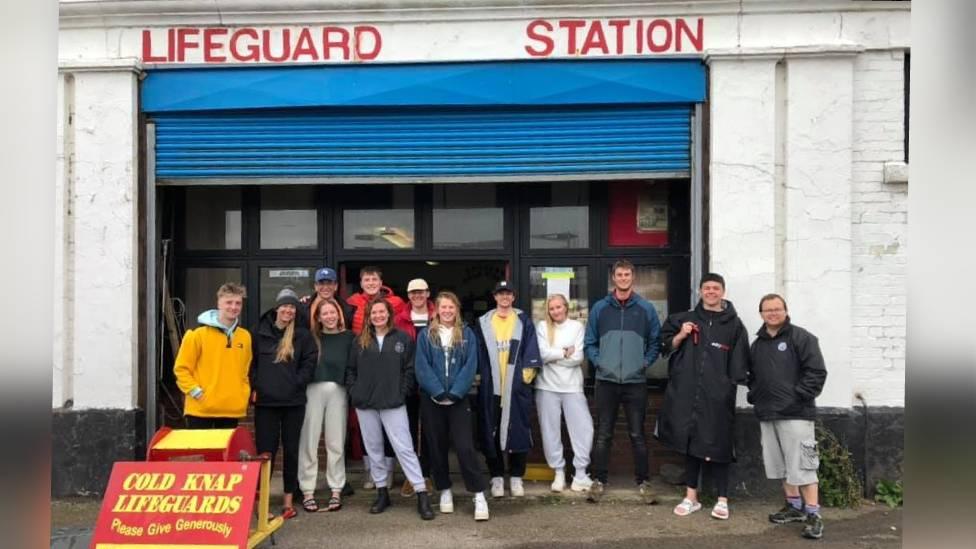Welsh beaches: Stay safe plea as most lifeguard patrols end
- Published
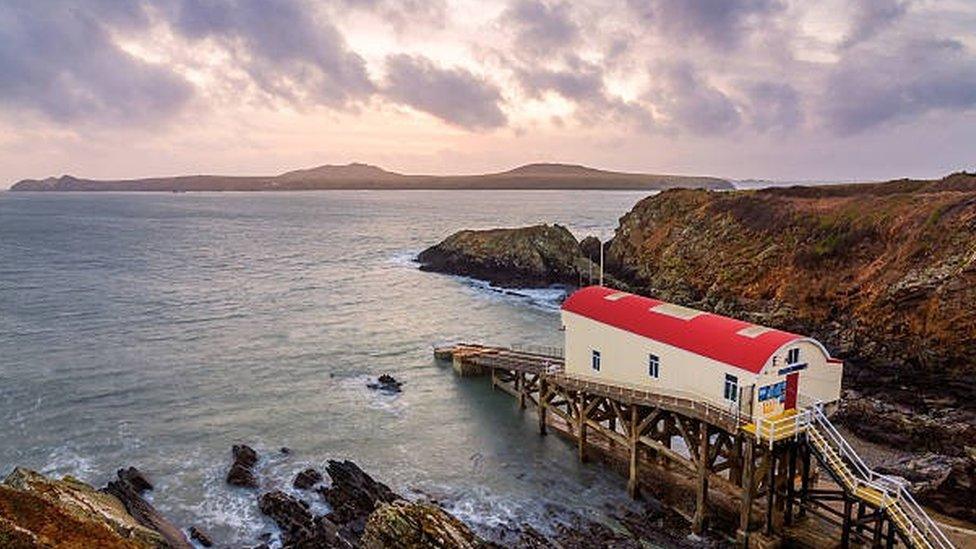
RNLI Pembrokeshire has urged people to stay safe with beach patrols being reduced
People are being urged to take care after lifeguard patrols on most Welsh beaches ended for the summer - despite temperatures soaring.
Only a handful of larger beaches will be watched by RNLI crews despite the fact crowds are expected to head to the coast in the hot weather.
The RNLI urged people to be careful with inflatable paddleboards and kayaks.
The charity said it had seen an increase in incidents in the last week.
The Met Office said temperatures could reach almost 33C on Saturday in the UK, making it the sixth consecutive day of the mercury exceeding 30C.
But there is a warning for thunderstorms for parts of Wales from 14:00 BST.
"People are flocking to the coast despite kids going back to school," said Anya Walton, who has been a lifeguard in Pembrokeshire for five years.
"There aren't necessarily lifeguards there any more, however, we're really lucky to have amazing volunteer lifeboat crews around the country."
Which Welsh beaches still have a lifeguard?
Many of the lifeguarded beaches in Wales are not being patrolled after 3 September. However, some lifeguards remain.
In Pembrokeshire, Whitesands Beach will be patrolled every Saturday and Sunday from 10:00 to 18:00 until 5 November.
In Swansea, both Caswell Beach and Langland Bay will both be patrolled every day until 17 September.
In Bridgend county, Rest Bay in Porthcawl will be patrolled every Saturday and Sunday from 10:00 to 18:00 until 17 September and Trecco Bay every day until 24 September.

Gemma Campbell has a "real fear" of her children going in the sea when there are no lifeguards around
Gemma Campbell lives within touching distance of Rhos-on-Sea beach in Conwy county but feels "much safer" going to Abersoch in Gwynedd with her children.
"I send my children there if they're doing sailing or going out the water," she said.
"There's lots of signage, and while they don't have a lifeguard, they do have beach patrol."
Dawn Davies has lived by the sea for 40 years and swims "all year round" with the 'Nova Nutters' in Prestatyn, Denbighshire.
She said lifeguards do an "excellent" job and people "must take responsibility" for their own safety.
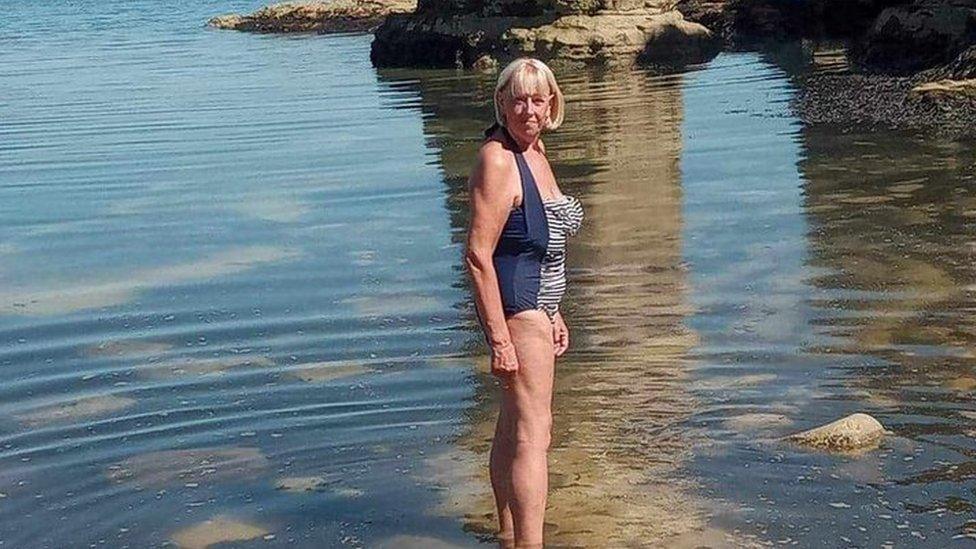
Dawn Davies said people must "respect" the sea when using it
"Never swim alone, use a highly visible floating aid, know the tide times, and keep away from the rock groynes," she said.
"We have to accept that the lifeguards are around only during the school holidays, and I don't think that will ever change."

What is the weather forecast?
The hot weather is expected to continue this weekend, although the heatwave could be interrupted by thunderstorms in some areas between 14:00 and 21:00, according to a Met Office weather warning, external.
"For most people it will still be a dry and fine Saturday and temperatures will remain high," said spokesman Stephen Dixon.
"But we have issued a yellow weather warning for thunderstorms on Saturday afternoon for central England and eastern Wales.
"Some might see 30-50mm of rain; there's a possibility of hail and lightning."
He added: "On Sunday the hot weather will be more confined to the south and east [of the UK].
"Elsewhere, it will become more unsettled and temperatures will return to the high teens."

Should people use inflatables in the sea?
The RNLI said it had "noticed a massive influx" of inflatable paddle boards and inflatable kayaks on beaches in the last year.
"They've become available in pretty much every supermarket in the country," said Anya.
"We strongly advise that people don't take them in if there's an offshore wind.
"Often people might go to a beach just down the coast where there aren't any lifeguards, the next minute they're blowing miles out to sea."
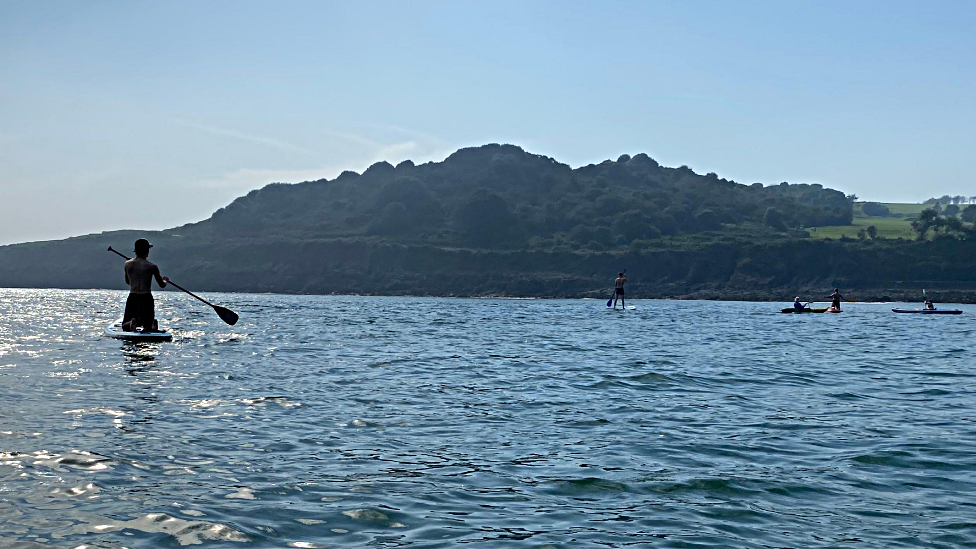
Paddleboarders take to the waters at Swansea Bay at The Mumbles
Anya said she believed supermarkets should put more warnings on inflatables to help the RNLI "reduce their workload considerably".
"It would be really helpful, not just for us, but for the people using them as well, because it has definitely become a trend," she added.
"People head straight down to the beach and, unfortunately, don't necessarily respect the water."
How to spot rip currents and how to survive them
What are the five steps to 'Float to Live'?
Anya said it was important that people know how to 'Float to Live', external in case they ended up in the water unexpectedly.
"You want to lie right back, tilt your head up to the sky, keep your nose and mouth out of the water and submerge your ears," she said.
"Try and stay relaxed and calm and try lying in a star shape position.
"Try and control your breathing and move your hands around gently to keep you afloat. A lot of people tend to panic because they feel like their legs sink, but everyone floats differently.
"If your legs sink, it's totally fine. You're still able to float by supporting your body by moving your hands.
"Once you feel like you've calmed down enough, if you've got the strength, try and wave and shout for help to try and get someone's attention."
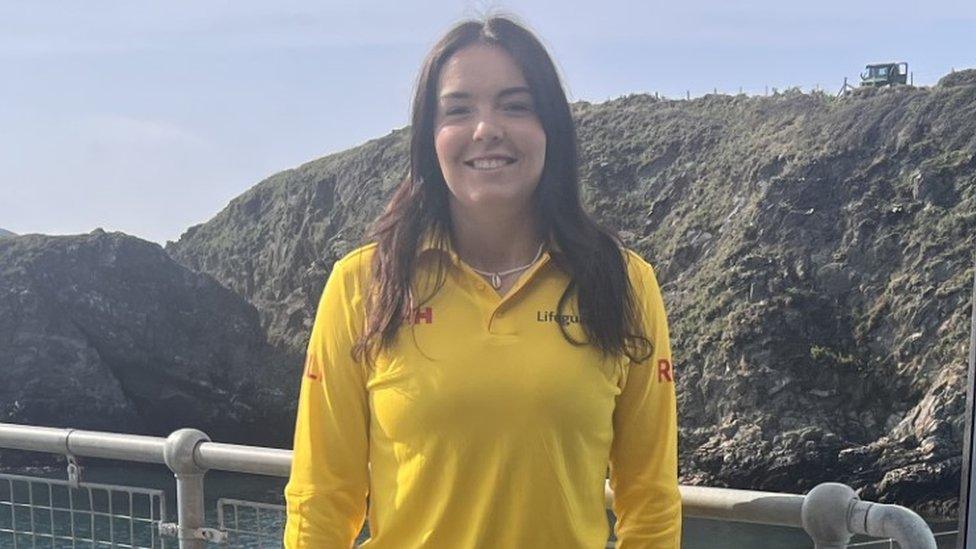
Anya Walton said there had been an "increase in incidents" recently

BINGE-WORTHY BOX SETS: Everyone is talking about these award-winning dramas...
WYNNE'S WELSH 70S: Nostalgia and footage from Wynne Evans' favourite decade

Related topics
- Published23 August 2023
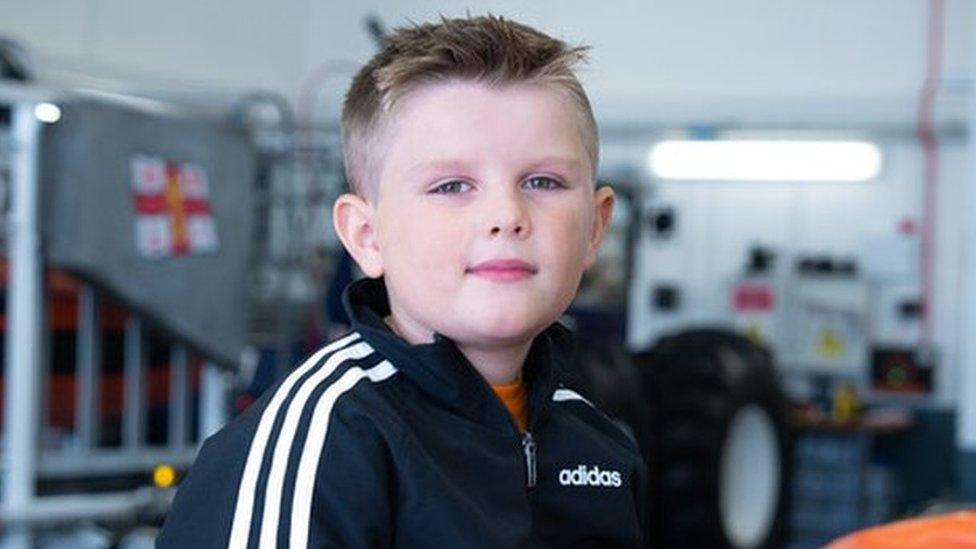
- Published4 September 2023
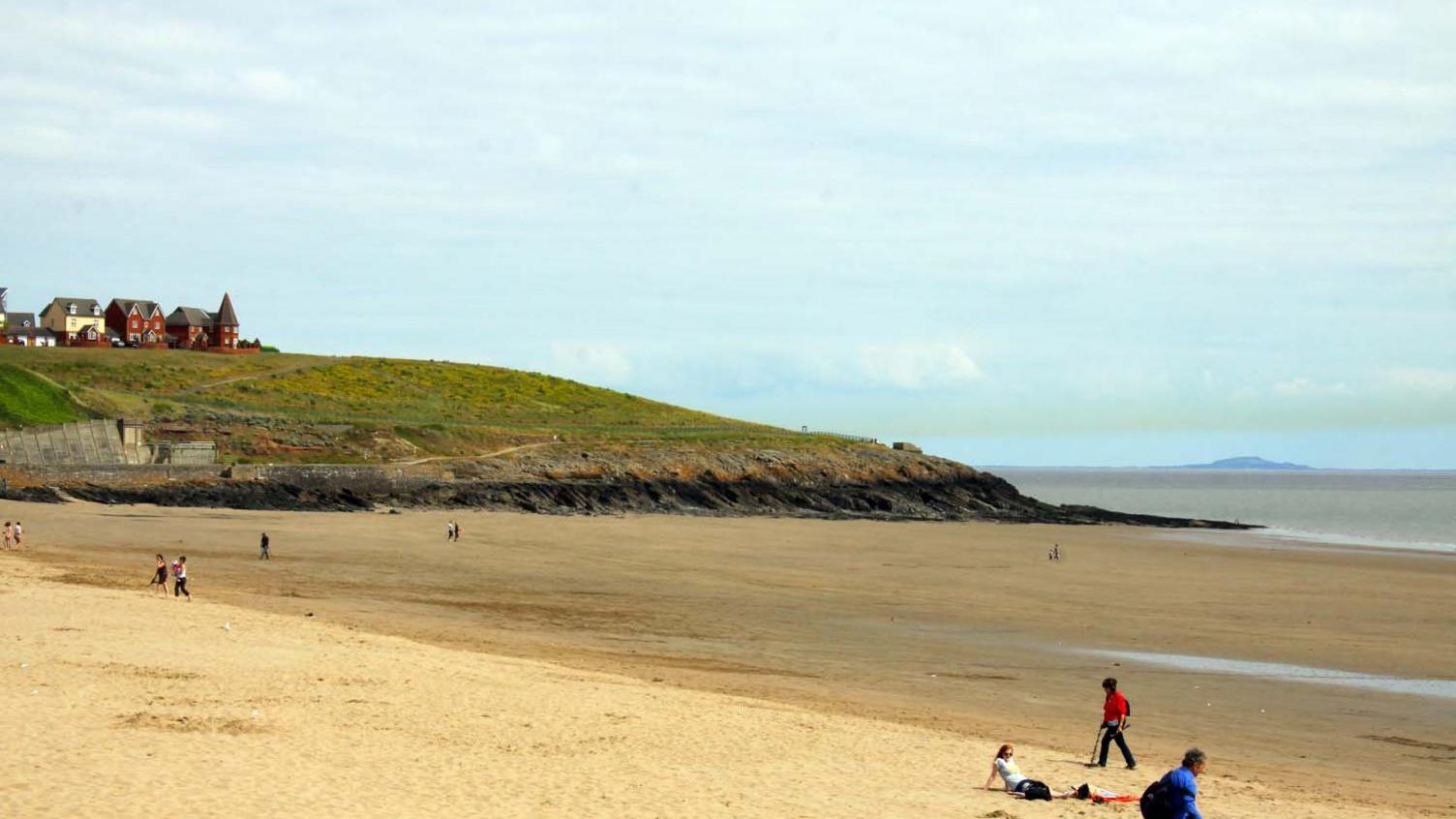
- Published18 June 2023
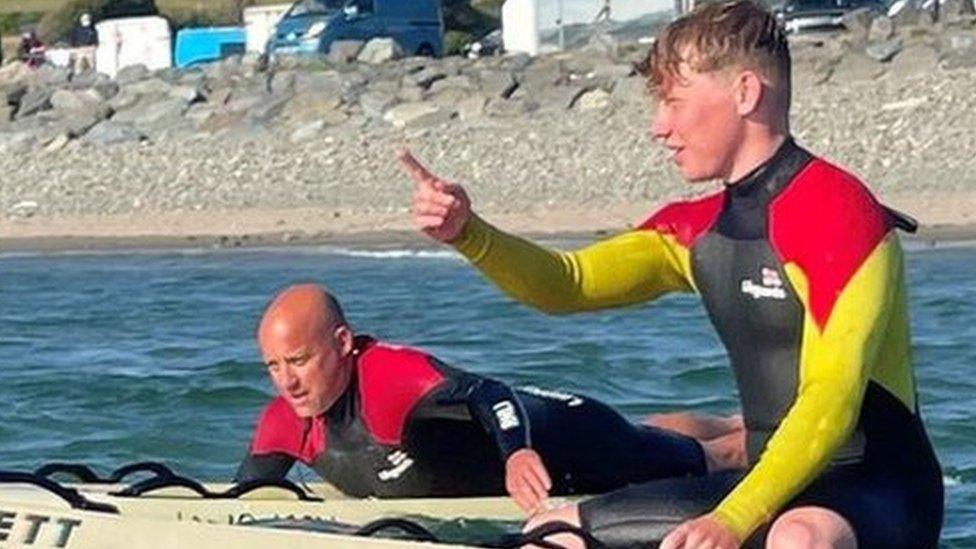
- Published6 July 2022
